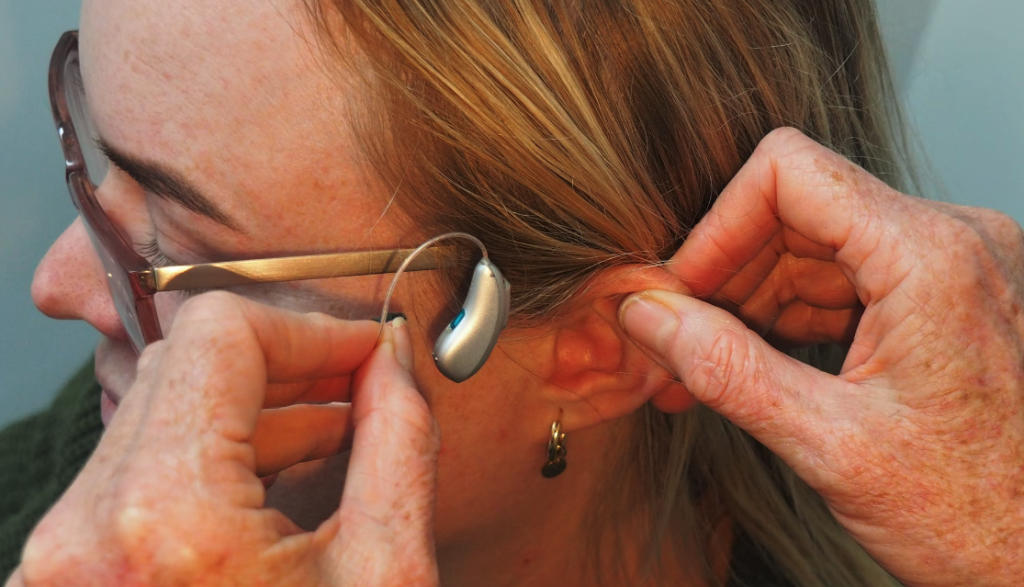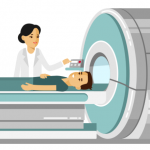In Canada, 38% of adults between the age of 20 and 79 years old suffer from hearing loss, which is diagnosed when someone has trouble hearing sounds over 20 decibels (for comparison, the volume of normal conversation usually ranges between 50-80 decibels). Additionally, 37% of adults suffer from tinnitus, which is characterized by the perception of noise not generated by any external source, for example, hearing ringing, hissing, buzzing, rushing or roaring sounds in the ears. According to statistics from the Government of Canada, hearing loss and tinnitus affect more men (63%) than women (46%) and typically get worse with age – only 9% of people aged 20 to 39 have hearing loss versus 94% of individuals aged 70 to 79 years old. These hearing-related disturbances can negatively impact the quality of life of the individual and have been associated with depression, anxiety and stress. When they coexist, mental and physical disabilities tend to influence and exacerbate each other, leading to more severe symptoms, and sometimes reduced social activity and self-isolation. This is a particularly important relationship to consider in the context of age-related cognitive decline and dementia, for which depression, anxiety, and stress are known to be risk factors.
Scientists have found that many people experience hearing loss 5 to 10 years prior to their diagnosis of age-related dementia. This may suggest that difficulty in hearing may contribute to cognitive decline. Because of this association, hearing loss is considered a modifiable risk factor for dementia. Modifiable risk factors are behaviours or exposures in a person’s life that, if changed, could potentially reduce their risk of developing a certain condition. This means that by treating a person’s hearing loss, we might be able to reduce their chance of developing dementia. Similar to this association, not smoking or quitting smoking can reduce a person’s risk for lung cancer. There are two possible explanations for this association, the first suggesting that it is auditory deprivation and lack of stimulation caused by hearing loss that contributes to cognitive decline. The other hypothesis suggests that hearing loss causes the brain to work harder on hearing and listening, which means that there are fewer resources available for other cognitive processes such as attention and working memory, which in turn contributes to cognitive decline. Whichever explanation is true, it is clear that the treatment of hearing loss is very important and should not be neglected, especially in older adults, or in individuals at risk for age-related dementia.
Research also shows associations between hearing loss and functional and anatomical changes in the brains of older adults. These changes can be assessed using neuroimaging techniques such as structural and functional magnetic resonance imaging. Using structural magnetic resonance imaging, individuals experiencing hearing loss had increased and faster brain volume loss in comparison to individuals without hearing impairment. Moreover, more neuronal losses in the hippocampus, a crucial region for learning and memory, and of the entorhinal cortex, a brain region playing a role in olfactory and memory processes, were found in Alzheimer’s disease patients with hearing impairment. The hippocampus and the entorhinal cortex are two of the regions impacted first in Alzheimer’s disease, the most prevalent of the age-related dementia. These findings suggest that patients with hearing loss are at increased risk of cognitive decline and dementia, and highlights the importance of treating hearing loss, a phenomenon affecting an increasing number of individuals each year with significant economic and social consequences.
The good news is that rapid development of new technologies has vastly improved hearing aids, and there are now several options for effective treatment of hearing loss. Wireless hearing aids can now be connected to smartphones, which adds helpful features that improve the patient’s quality of life. For instance, phone calls and other audio such as driving instructions or music can be transmitted directly from the phone into the hearing aid, and the patient can control the volume for the left and right ear independently.
To date, the most successful device in helping the brain recover from hearing impairment is the cochlear implant. This neuroprosthetic device helps people hear better in general, and especially helps them listen and speak in noisy environments. Hearing aids and cochlear implants are also the first choice of treatment for tinnitus, with symptoms decreasing or disappearing in more than 80% of individuals with a cochlear implant. While the use of hearing aids has not been proven to directly reduce the risk of cognitive decline or dementia, it has been shown to be associated with functional and anatomical changes in the brain of older adults with hearing loss. For example, studies have shown that it is possible to reverse decreases in both neuronal activity and cortical thickness caused by hearing loss, after just one year of hearing aid use.
According to the World Health Organization, up to 2.5 billion people will experience hearing loss by 2050, with 700 million individuals in need of hearing rehabilitation. Unaddressed hearing loss is an issue with a huge economical impact, costing approximately 980 billion US dollars per year, and currently, less than 20% of individuals over 70 years old who are affected by hearing loss have hearing aids. Even though older individuals require more time to adapt to hearing aids and cochlear implants than younger individuals, the positive impacts on brain structure, cognition, and quality of life in general are just as clear. Moreover, the potential for hearing impairment to lead to higher risk of cognitive decline and dementia mean that it is crucial to take care of patients experiencing hearing loss at any age, to help them lead healthier and happier lives.
Flavie Detcheverry is a PhD student in biomedical engineering at the Université de Montréal. Her research project at the MIND lab under the supervision of Professors Badhwar and Narayanan, is to study level changes of brain metabolites using magnetic resonance spectroscopy in the brain, and using mass spectrometry-based metabolomics in blood. She is passionate about learning and being involved in scientific research and science communication.




